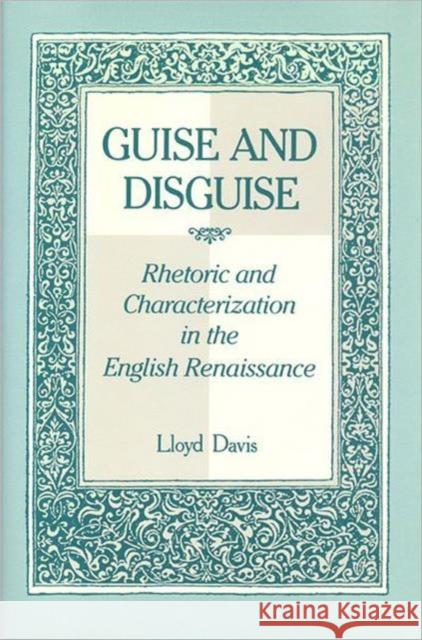Guise and Disguise: Rhetoric and Characterization in the English Renaissance » książka
Guise and Disguise: Rhetoric and Characterization in the English Renaissance
ISBN-13: 9780802029560 / Angielski / Twarda / 1993 / 224 str.
Disguise is a recurring figure in many Renaissance texts. In its apparent intention to deceive, it raises complex issues of identity, motivation, and the construction of character. Lloyd Davis's Guise and Disguise examines disguise as a rhetorical and dramatistic motif in a wide range of Renaissance texts. Drawing on the sociological analyses of character in the work of Goffmann and Garfinkel as well as on recent historicist studies of Renaissance literature, Davis argues against an essentialist notion of identity. He posits a counter-tradition of character as invented, shaped guise, a cultural process realized through rhetorical and dramatic performance.Davis traces the conflict between idealist and cultural notions of selfhood fromits classical roots to its role as a key social concern in the English Renaissance. He analyses rhetorical texts from Wilson, Rainolds, Puttenham, and Sidney; the political and social philosophies of Machiavelli, Castiglione, Montaigne, Bacon, and Hobbes; the religious writings of Erasmus, Calvin, and Donne; and the dramatic works of Lyly, Shakespeare, Marston, Jonson, and Beaumont and Fletcher. He sees issues of selfhood and identity as central to the period's ideological and gender discourses, and strategies of disguise and character-making as challenging the political and sexual motives that underlie imags of the essentialist self. Davis's approach links Renaissance culture both to its past and to modern and post-modern notions of subjectivity and language.











